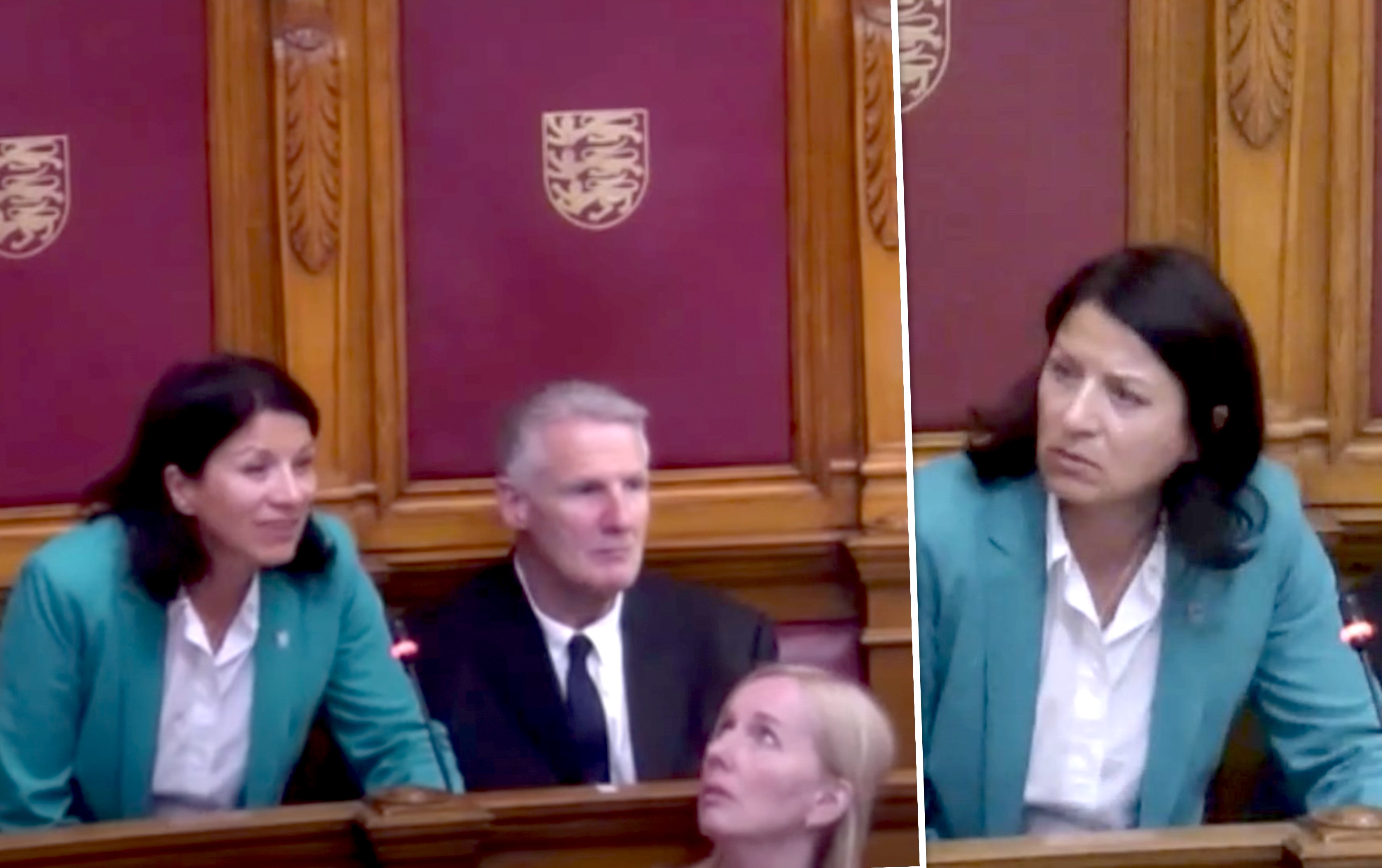


A States Assembly debate over whether a politician who called a colleague a “silly cow” and gave her “inappropriate” expensive gifts should be officially reprimanded could be held behind closed doors.
Two reports published by the parliamentary behaviour watchdog this week shed light on a toxic spat between Deputies Max Andrews and Moz Scott.
The pair – who used to sit on the Economic and International Affairs Scrutiny Panel together before Deputy Andrews resigned in March – were separately referred to Commissioner for Standards Dr Melissa McCullough earlier this year.
Deputy Max Andrews was referred for what were described as "discourteous communications to her and about her; and violation of her personal boundaries", which involved compliments that she looked "stunning", occasions in which he gifted her an "inordinately expensive" box of chocolates, Chanel perfume and bath oil, in addition to a heated exchange on Liberation Day when he was reported to have called her a "silly cow".
The complaint about Deputy Scott revolved around “inappropriate language” to Deputy Andrews, which included telling him to “f*** off”.

Pictured: Deputy Moz Scott of St. Brelade was also found to have breached the rules governing States Members' behaviour.
Dr McCullough recommended in her reports that both should apologise to the States Assembly for breaching the States Members’ Code of Conduct, and that a suspension or ‘vote of censure’ should be considered in the case of Deputy Andrews.
The Privileges and Procedures Committee (PPC) – the panel of politicians responsible for overseeing the running of the Assembly – concluded that a written apology from Deputy Scott to Deputy Andrews would suffice, but decided to bring a vote of censure against Deputy Andrews when the States Assembly meets for the first time after the summer on 12 September.
A vote of censure does not involve an official punishment – if the Assembly votes ‘for’ the motion, it is a way of expressing strong disapproval in an individual States Member.
That same year, former Education Minister Rod Bryans also faced a vote of censure, but the motion was defeated.
However, unlike previous debates which were held in view of the public, PPC has decided to ask the Assembly to agree to an 'in camera debate' for the vote of censure against Deputy Andrews.
PPC's Chair, Constable Karen Shenton-Stone, told Express that this was due to the involvement of "sensitive and confidential information".
If politicians agree to holding their discussions 'in camera', this means that the debate will not be broadcast live – either online or on the radio – like other States Assembly debates. Members of the public will not be allowed into the Chamber.
A transcript will not be made public, and the media will not be able to report on comments made during the debate.
Not all States Members agree with the approach of PPC, whose membership also includes Deputies Mary Le Hegarat (Vice-Chair), Lyndon Farnham, Carina Alves, Lyndsay Feltham, Malcolm Ferey and Lucy Stephenson.
Constable of St. Ouen, Richard Honeycombe, said that if the reports are public, then the debate should be as well.
Comments
Comments on this story express the views of the commentator only, not Bailiwick Publishing. We are unable to guarantee the accuracy of any of those comments.